The views expressed in our content reflect individual perspectives and do not represent the authoritative views of the Baha'i Faith.
…the root cause of prejudice is blind imitation of the past — imitation in religion, in racial attitudes, in national bias, in politics. – Abdu’l-Baha, Selections from the Writings of Abdu’l-Baha, p. 247.
People tend to rely heavily on tradition.
My new friend Mary (whose name I changed here to protect her privacy) feels deeply connected to her family’s Catholic traditions, and experiences the strong pull of those traditions when she contemplates becoming a Baha’i. Many people who take a journey of spiritual discovery feel the same way, finding it hard to contemplate such a transition. When we believe something new, how do we leave the old traditions behind?
Tradition has an important place in our lives. It anchors us to our ancestors, to the past, to the things we think of as deeply important.
But what defines a tradition? The standard Wikipedia definition says that “tradition refers to beliefs, objects or customs performed or believed in the past, originating in it, transmitted through time by being taught by one generation to the next, and are performed or believed in the present.”
Just for fun, let’s consider and examine a few venerable traditions.
 Western cultures teach their children about Santa Claus, who historians say came originally from the Dutch mythical figure Sinterklaas, and even earlier from the historical Greek bishop Saint Nicholas, the 4th century bishop known for his gift-giving–and as the patron saint of sailors, merchants, pawnbrokers and repentant thieves. However, we get our traditional jolly, rotund Santa image from two sources: the bearded depiction of the Norse god Odin and his pagan midwinter celebration called Yule; which Christianity incorporated into its traditions when Germanic and Scandanavian people began to become Christians; and a 19th century political cartoonist and caricaturist named Thomas Nast, who first drew his version of the modern Santa Claus in 1881.
Western cultures teach their children about Santa Claus, who historians say came originally from the Dutch mythical figure Sinterklaas, and even earlier from the historical Greek bishop Saint Nicholas, the 4th century bishop known for his gift-giving–and as the patron saint of sailors, merchants, pawnbrokers and repentant thieves. However, we get our traditional jolly, rotund Santa image from two sources: the bearded depiction of the Norse god Odin and his pagan midwinter celebration called Yule; which Christianity incorporated into its traditions when Germanic and Scandanavian people began to become Christians; and a 19th century political cartoonist and caricaturist named Thomas Nast, who first drew his version of the modern Santa Claus in 1881.
In many of the world’s societies, the white wedding dress has long been thought of as not only the traditional symbol of the bride’s purity, but of the new, fresh beginning every wedding celebrates. People tend to think of white wedding dresses as an ancient tradition, but do you know when they got their start? It all began when Queen Victoria wore white to her wedding to Prince Albert in 1840, and her Victorian fashion choice created an industry.
And what about Mother’s Day? That “traditional” holiday started in 1908, when a West Virginia woman named Anna Jarvis decided to hold a memorial for her mother, Ann Reeves Jarvis—who had been a peace activist during and after the American Civil War, and who created women’s “work clubs” to promote public health and fight the spread of disease.
Because we learn our own cultural and familial traditions from our parents and grandparents, we may think of them as ancient and everlasting—but that usually isn’t true. In fact, many so-called traditions are invented on purpose and come from the recent and not the distant past.
The same dynamic holds true in religion. Religious traditions primarily originate from the activities of the faithful themselves, from the clergy, or from ceremonial practices that have little or no basis in the original message of the Faith. These traditions can gradually overwhelm or even contradict the Faith’s teachings, leading to a tradition-bound, ritualistic brand of religion that loses its spiritual foundation.
Baha’is, who believe that each person should independently investigate the truth, do not reject all tradition—instead, the Baha’i writings ask us to simply question the origins of tradition, and avoid blindly imitating them without first doing that questioning:
…every man must be an investigator for himself. Ideas and beliefs left by his fathers and ancestors as a heritage will not suffice, for adherence to these are but imitations and imitations have ever been a cause of disappointment and misguidance. Be investigators of reality, that you may attain the verity of truth and life. – Abdu’l-Baha, Foundations of World Unity, p. 76.
We must discover for ourselves where and what reality is. In religious beliefs nations and peoples today are imitators of ancestors and forefathers. If a man’s father was a Christian, he himself is a Christian; a Buddhist is the son of a Buddhist, a Zoroastrian of a Zoroastrian… This is absolute imitation. The requirement in this day is that man must independently and impartially investigate every form of reality. – Abdu’l-Baha, The Promulgation of Universal Peace, p. 327.
Common religious superstitions, traditions and imitations, Baha’is believe, have done tremendous damage to the human race. They can foster ignorance, oppose science, allow people to justify intellectual laziness and contribute to prejudice, hatred and violence:
The greatest cause of bereavement and disheartening in the world of humanity is ignorance based upon blind imitation. It is due to this that wars and battles prevail; from this cause hatred and animosity arise continually among mankind. – Abdu’l-Baha, Foundations of World Unity, p. 73.
This revolutionary Baha’i teaching—that every human being should endeavor to avoid blind imitation of the past—doesn’t reject the ancient Faiths. Instead, it embraces them:
Baha’u’llah teaches that the foundations of the divine religion are one reality which does not admit of multiplicity or division. Therefore, the commandments and teachings of God are one. The religious differences and divisions which exist in the world are due to blind imitations of forms without knowledge or investigation of the fundamental divine reality which underlies all the religions. – Abdu’l-Baha, The Promulgation of Universal Peace, p. 289.
Baha’is believe that blind imitation of the past closes off the vast potential of the future.
You May Also Like
Comments



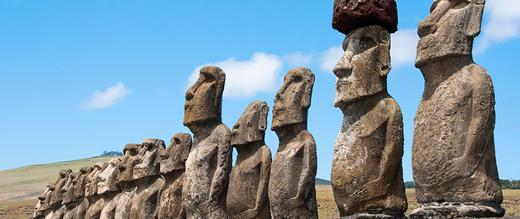
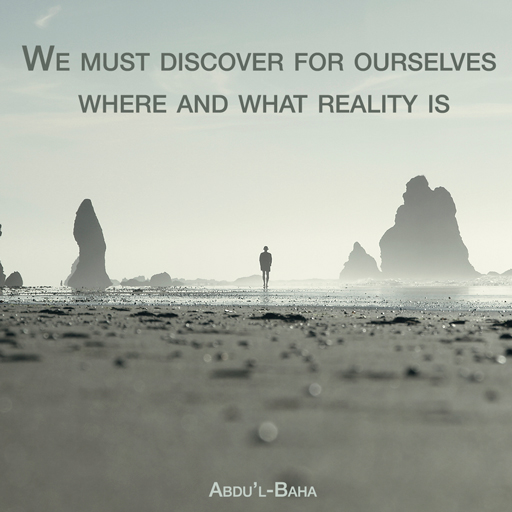

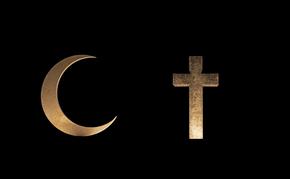
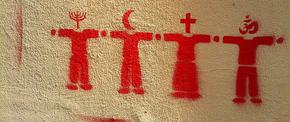
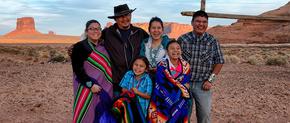

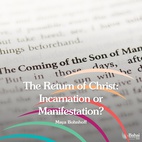

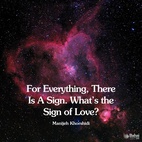


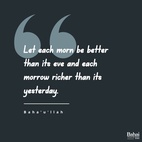


'These traditions can gradually overwhelm or even contradict the Faith’s teachings, leading to a tradition-bound, ritualistic brand of religion that loses its spiritual foundation.'
Absolutely, such was my impression at nine years of age !
I remember making a Novena while thinking 'OK, I can do any thing I like from now on because according to the Church I'll come back to God before I die. OK I'll come back on the day of my death and in the mean time I'll raise hell if I feel like it.'
In Some Answered Questions in a section titled ...the Two Classes of Prophets the Master unequivocally and i m o BLUNTLY, writ large, explains and prophesies
"Now, consider: Christ frequently repeated that the Ten Commandments in the Pentateuch were to be followed, and He insisted that they should be maintained. Among the Ten Commandments is one which says: “Do not worship any picture or image.” At present in some of the Christian churches many pictures and images exist. It is, therefore, clear and evident that the Religion of God does not maintain its original principles among the people, but that it has gradually changed and altered until it has been entirely destroyed and annihilated. Because of this the manifestation is renewed, and a new religion established. But if religions did not change and alter, there would be no need of renewal"
"Again, consider how much the principles of the religion of Christ have been forgotten, and how many heresies have appeared. For example, Christ forbade revenge and transgression; furthermore, He commanded benevolence and mercy in return for injury and evil. Now reflect: among the Christian nations themselves how many sanguinary wars have taken place, and how much oppression, cruelty, rapacity and bloodthirstiness have occurred! Many of these wars were carried on by command of the Popes. It is then clear and evident that in the passage of time religions become entirely changed and altered. Therefore, they are renewed."
What Abdu'l-Baha is not saying i m o in the above excerpts from the same source is to throw out the baby with the bath water if you'll pardon my allusion to the infant Jesus. Maybe Mary for a while can have her cake and eat it too sort of thing. "Consort with the followers of all religions...." is in the Writings
Mary might be wise to take her time and wait for her family members to ask her about her new found knowledge and ways whose provenance emanates from Baha'u'llah.
Personally speaking I think our Christian friends will enter the Baha'i Faith in droves one day soon and in the process they'll move us from a generational stasis of about six million, a stat we aver with inexactitude
Baha'i love
Paul
.